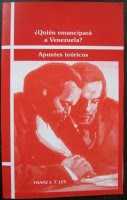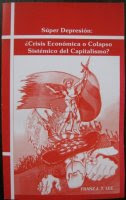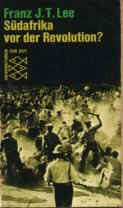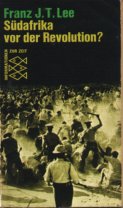Venezuela: Reflections about Transcending the Dialectics of Reform and Revolution
By Franz J. T. Lee
In various publications on the internet we can register a serious preoccupation about the future of the Bolivarian Revolution and socialism on a global scale. Allow us to summarize our views expressed with relation to human emancipation across the past decade.
Let us begin with the philosophic, emancipatory sublime. The ancient Greek materialist philosopher Heraclitus of Ephesus (who President Chavez loves to quote) two and a half millennia ago already knew that 'panta rhei', that is, that 'everything flows'; that one cannot step twice into the same river. Till today this 'fiery' river is a practical, concrete attack on all static, dogmatic, reformism, against ideological and religious 'absolute truths', which across the ages were perpetuating and defending the exploitative, dominating and discriminating productive global status quo.
The philosophic counterpart of Heraclitus, Parmenides of Elea postulated the eternal, absolute 'hen kai pan', the one and all; later it will become the summum bonum, the Platonic Idea of the Idea, the Highest Good, the monotheistic patriarchal god, the divine quintessence of the ruling class State, of all earthly lords, water lords and war lords.
In the cradle of Western and European philosophy and ideology the formal logical and dialectical parameters were born, that is, the contradiction 'society and nature', later politically expressed as 'reform and revolution', nowadays, even as peace and war, as barbarism or socialism. In tune with 'Big Brother', 'freedom is slavery', very often, reformists shout: 'capitalism is socialism', 'Stalinism is real, existent socialism'.
Let us try to simplify the above logic.
The above logic, the way in which most of us unknowingly 'think', is based on a single philosophic principle, on 'A'. By stating that 'A' is divine, absolute and eternal, that nothing is or exists that transcends 'A', we land in the Moloch of Mind and Thought Control. Hitler explained it as follows: 'To control a people is to control its education'. Thereafter, cynically he stated: 'How lucky the rulers are that people do not think.' Thus, change can only come from within, from within 'A'. Comrades in Venezuela and elsewhere, without thinking, without theory we will never leave the Platonic cave of intelligible 'bliss', of visionary ignorance. Without emancipatory philosophy we will never know what is to be done.
In capitalist education, in education for barbarism, 'B', which is neither 'A' nor 'Non-A' simply is forbidden. Revolution and Non-Revolution (Reform)exist, however, categorically Emancipation(B) is being declared 'thought crime', is 'terrorism'. Hence 'A always equals A', this the third law of formal logic expresses. This is the logical basis of the reigning imperialist superstructure, of Orwellian 'newspeak', of the Mental Holocaust. It is destroying the diferencia especifica of human beings, the possibility and capacity to think.
On this is based the fallacy that change can only come from within, from within 'A', the status quo, the establishment, the world order, the State, the united political party and the family. Anything else, beyond this credo, beyond this paternoster, is being classified as blasphemy, atheism, betrayal, extremism and terrorism.
In how far the above concerns the Bolivarian Revolution, socialism and globalization?
The anticipatory secret to venture beyond Parmenides (eternal rest) and Heraclitus (perpetual change), beyond the two sides of the very same formal logical and dialectical process, ... of a single, universal closed system, which only accepts 'A' as its one and only postulate, ... was given to us by Kratylos, the pupil of Heraclitus.
He simply drove 'A' and its derivation 'Non-A' to its logical conclusion, by warning his teacher that 'one cannot step into the same river not even once', ... because by doing this, fresh water always is flowing away from under one's feet.
Yes, as long as we will have a single postulate, a single 'A', everything will flow away, everything will change in Venezuela and in the world except perpetual change itself. Therewith we land in the 'one and all' again.
How to get out of this dilemma?
All over, as capitalist States, as a result of profit mongering, production, technology and industrialization, we are changing nature into ashes, into oil leaks, radio-activity, and 'chemtrails', are changing use-values into exchange-values, workers into guinea-pigs, into electoral and canon fodder, are changing gold, uranium and oil into capital, into United States Fed counterfeit money; and we are transforming autochthonous peoples into landless beggars.
In the 'Manifesto of the Communist Party' (1848) Marx and Engels predicted this capitalist process, this revolution, this globalization of capital, this mode of destruction. The revolution (panta rhei), rivoluzione, rivoltura, in all social, political, economic and military fields, was invented, conceptualized, materialized and launched as the most formidable transhistoric, bellicose weapon of bourgeois, democratic capitalism. For centuries we are trying to transform the bourgeois revolution into the 'proletarian revolution', all in vain, the world market was not constructed for this check-mate. We have to create our own super arm: Emancipation.
The revolution is the globalization of capital, of capitalism. Not its negation, rather its proletarian transcendence, we have to create. We need an exit, an exodus, an exvolution out of this imperialist global megalomania.
Originally, as Renaissance, Reformation, Enlightenment and Natural Science, the revolution as mechanical materialism was launched against religious, idealist obscurantism, against the class enemies of the bourgeoisie, against the decrepit nobility and corrupt clergy. The latter defended themselves with their feudal status quo, with the religious, dogmatic 'absolute truths', with the Inquisition and burning at the stake, with Parmenides' hen kai pan, with eternal rest, with rest in peace.
Historically, feudalism had no chance to stop the emergent bourgeoisie, its inexorable forward march towards globalization, not in the fields of logic, science, philosophy and war. No savior from high, no messiah came to rescue the inventors of radical human alienation, of Christianity. Now the bourgeoisie is launching its weapon, the revolution, against the 'wretched of the earth', no wonder that in the end we know neither what revolution nor what socialism are anymore.
In Venezuela, the revolutionaries ought to know for what Francisco de Miranda fought in the French Revolution. Surely the negation of capitalism, socialism, was not yet on the order of the day. On the contrary, the bourgeoisie was celebrating the victory of its three capitalist revolutions.
In the past I have asked: How is it possible to poison the black mamba snake with its own venom?
How do we expect to liberate ourselves within the static framework of the capitalist political State, with its exploitative essence, terrorist domination and inherent racism? What happened with all our intra-systemic resistance over the last centuries, with our democratic organizations, peaceful hunger strikes, marches, reformism and pleas for mercy and succor?
What was the response of systemic panta rhei against workers' 'revolution'? How many of our comrades, who tried to avoid 'puntofijismo' half a century ago are 'resting in peace'? Why are we again at the dilemma: What is to be done in Venezuela, here and now?
How far did the 'revolution' bring us in Cuba, in Venezuela and elsewhere?
Why did all the revolutions of the 20th century not reach their proletarian emancipatory objectives?
1. We have to learn to identify praxically what is a revolution and what it is not: what is socialism and what it is not. In other words, to begin, we need a new mode of thinking and thought, new concepts, a new logic, a new science and a new philosophy.
2. After more than two millennia of accumulation of capital, of the labor process, of the revolution, it is high time and high tide to understand what is revolution and whose class interests it always has been serving.
3. Surely, within the closed world order, reform preserves the status quo and revolution, the Orwellian Leviathan, guards the universal business treasures ... liberty, equality and fraternity of all capitalists. In the same way as religion always served the interests of the ruling classes, the revolution till now served the interests of corporate globalization.
4. President Hugo ChavezFrias himself has confirmed that Venezuela is still a capitalist State, and how ridiculous it is for him, as president of an oil-rich capitalist State, to call for the foundation of a Fifth International.
5. Venezuela should begin to comprehend that great gods, god-men and men-gods do not make history. Modern history is being made by violent class struggles, by the inexorable, brutal accumulation and terrorist destruction of capital and labor.
6. Similarly, history or socialism we do not make in an isolated commune, in a single political party or trade union, on a single island or in a capitalist bloc. Also great men, without a cook, a wife or a horse, also cannot make or break history. Currently, corporate imperialists make their revolution, are monopolizing class power, are founding an international mafia of organized capital criminality, a one world government, are globalizing capitalist terror. Also no divine saint or pope reveals human history; no 'chosen people' from a 'promised land' is making history.
7. Summing up, surpassing Heraclitus and Parmenides, about what was Kratylos reminding us to reflect profoundly?
Formal logically, as world reality, to identify feudalism, religious oligarchy, in Venezuela, to differentiate it as continental capitalism and imperialism, and to surpass both feudalism and capitalism as global socialism.
As I stated in my book five years ago 'Venezuela: From Bolivarian Revolution to Human Emancipation', dedicated to President Chavez, today more than ever it is pertinent to transcend intra-systemic reform and revolution and to surpass into the internal-external realm of creating, creative emancipation.
See: http://www.franzlee.org.ve/index2.html
franz@franzlee.org.ve
--













No comments:
Post a Comment